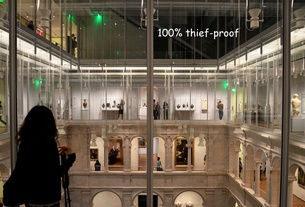Faculty members were not the only group to voice concerns about discrimination. Many minority students also felt that Harvard had not fully distanced itself from the discrimination that ran rampant before the Civil Rights movement.
When de Leon entered Harvard College as a freshman, she was unprepared for the sheltered upbringing of many of her peers.
She sometimes felt that she and other minority students were at Harvard to provide superficial diversity to the student body.
“In a lot of ways, we got the impression that we were there... to be a part of the diversity experience for the white students, that we were there as some kind of prop or set dressing, and that our needs weren’t the most important thing,” de Leon says.
Students at other colleges had demanded and received cultural houses that offered a space for minority students to gather and support one another.
Harvard, however, had yet to provide such a space, according to de Leon, who felt that the University did not appreciate the needs of the African American community.
Paul also felt that the the Asian American community was at the time misunderstood both on campus and across the nation.
“I do think there was a perception that Asian Americans don’t need any help, that they’re going to be fine, that they are generally fairly studious,” Paul says.
Jackson also noticed a subtle, if unconscious, disparaging attitude toward female students at the Business School.
“It seems to me that I was having lunch with one of the senior administrators, like a consigliere to the dean or something like that,” she says.
Jackson remembers hearing a senior administrator telling her over lunch that the school did not want to admit more women because it wanted to train the “leaders of the future.”
For de Leon, the exclusionary atmosphere was heightened by the limited course offerings at the College. De Leon remembers that when she first arrived at Harvard in 1984, the College offered only two courses about Africa and no courses on African languages.
According to de Leon, her high school offered a wider range of courses than Harvard.
“It was shocking to me that my public high school had better offerings in African languages than Harvard,” she says.
According to de Leon, Harvard focused instead on the culture and history of Western Europe—a disparity that made some students think that the University prioritized studying the West over ethnic studies. Thus, for minority students, even the course catalogue cemented the idea that Harvard paid too little attention to racial issues.


